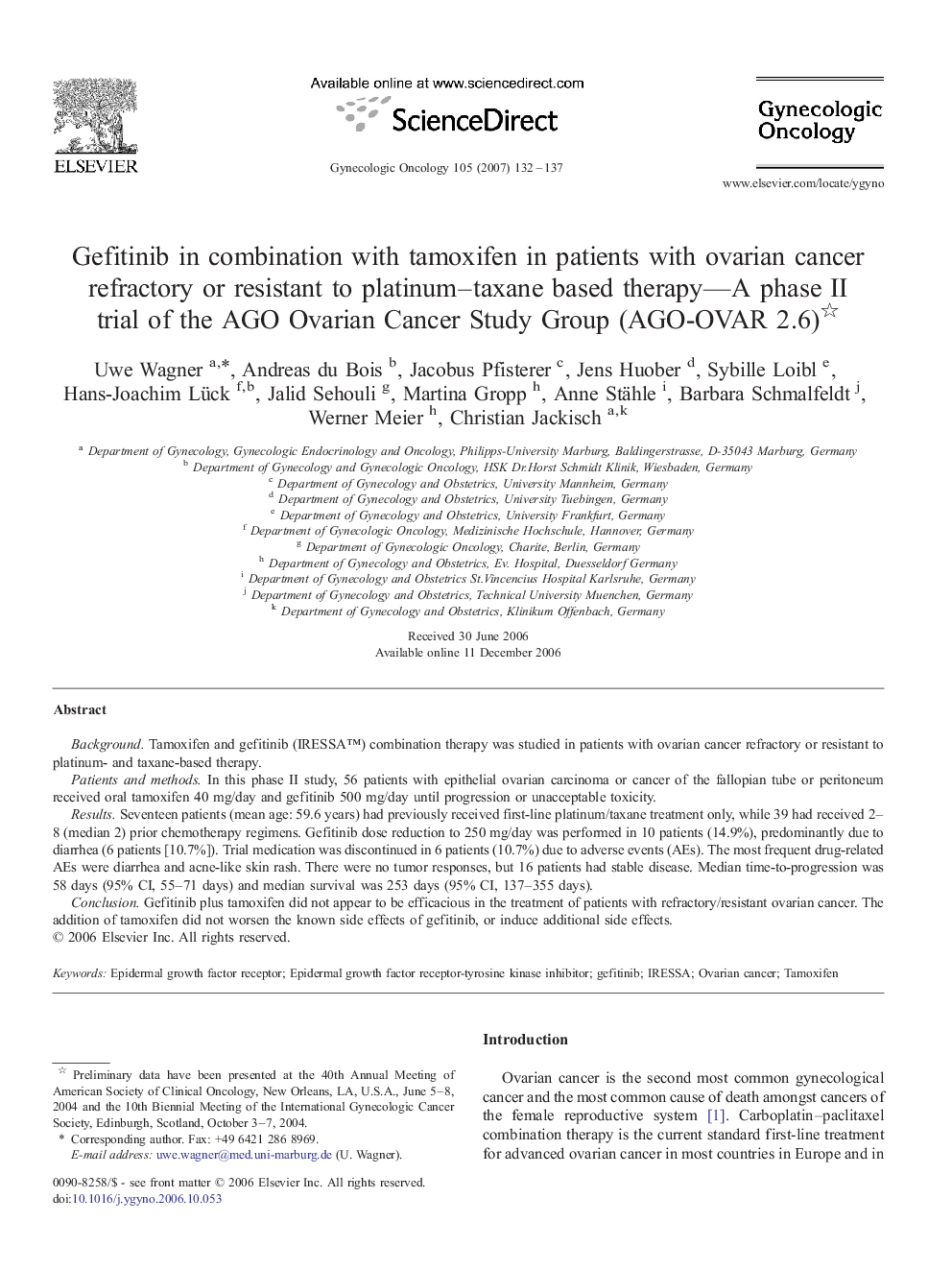| Article ID | Journal | Published Year | Pages | File Type |
|---|---|---|---|---|
| 3944968 | Gynecologic Oncology | 2007 | 6 Pages |
BackgroundTamoxifen and gefitinib (IRESSA™) combination therapy was studied in patients with ovarian cancer refractory or resistant to platinum- and taxane-based therapy.Patients and methodsIn this phase II study, 56 patients with epithelial ovarian carcinoma or cancer of the fallopian tube or peritoneum received oral tamoxifen 40 mg/day and gefitinib 500 mg/day until progression or unacceptable toxicity.ResultsSeventeen patients (mean age: 59.6 years) had previously received first-line platinum/taxane treatment only, while 39 had received 2–8 (median 2) prior chemotherapy regimens. Gefitinib dose reduction to 250 mg/day was performed in 10 patients (14.9%), predominantly due to diarrhea (6 patients [10.7%]). Trial medication was discontinued in 6 patients (10.7%) due to adverse events (AEs). The most frequent drug-related AEs were diarrhea and acne-like skin rash. There were no tumor responses, but 16 patients had stable disease. Median time-to-progression was 58 days (95% CI, 55–71 days) and median survival was 253 days (95% CI, 137–355 days).ConclusionGefitinib plus tamoxifen did not appear to be efficacious in the treatment of patients with refractory/resistant ovarian cancer. The addition of tamoxifen did not worsen the known side effects of gefitinib, or induce additional side effects.
